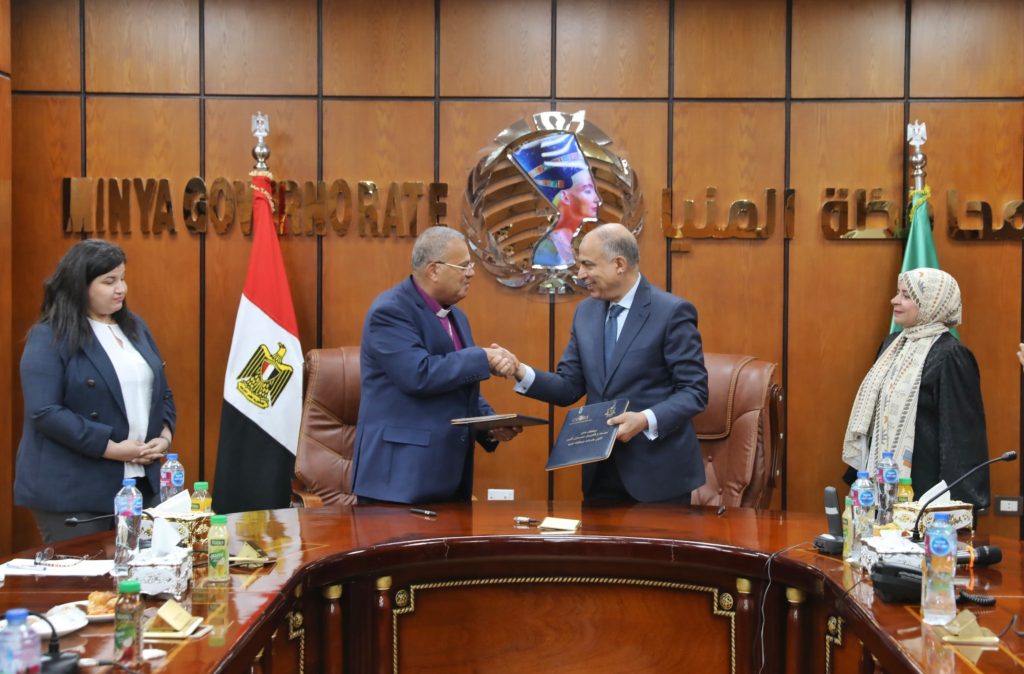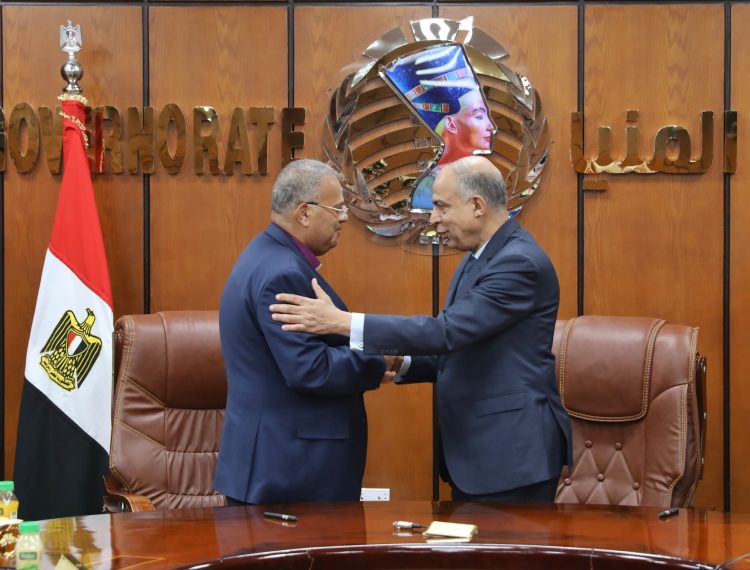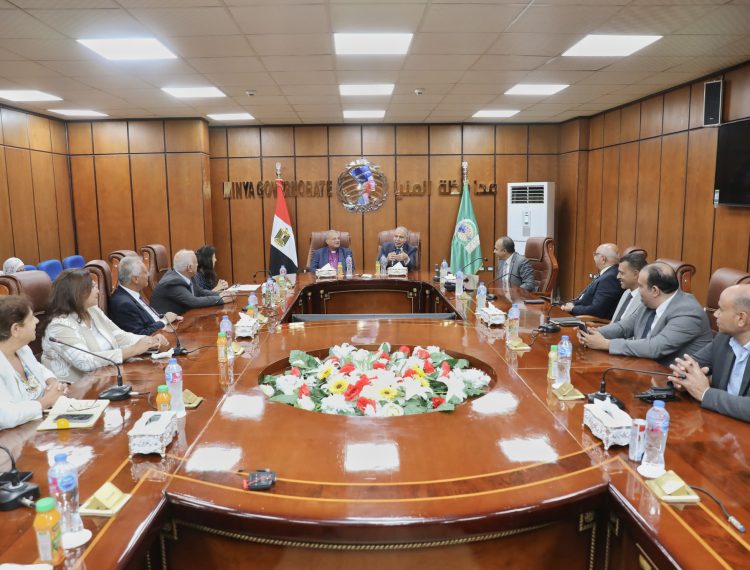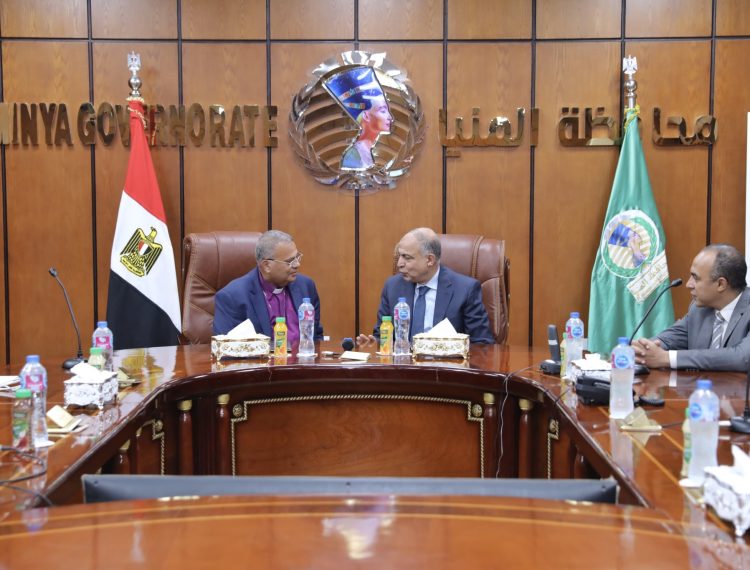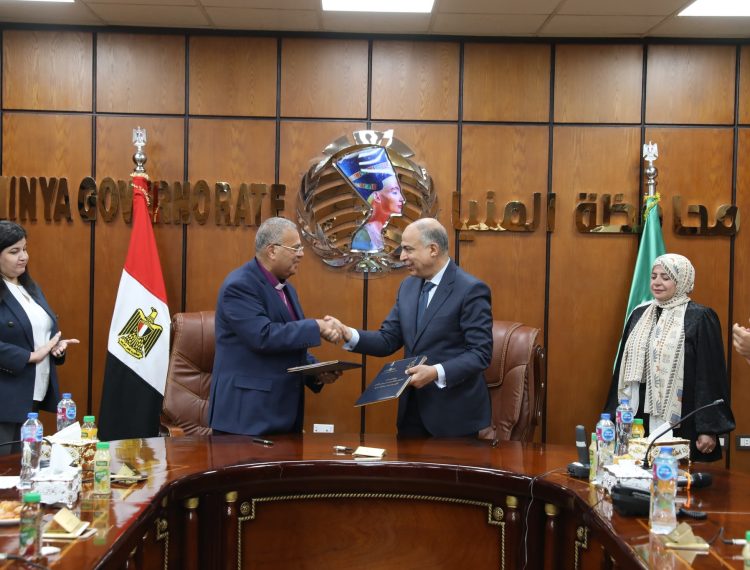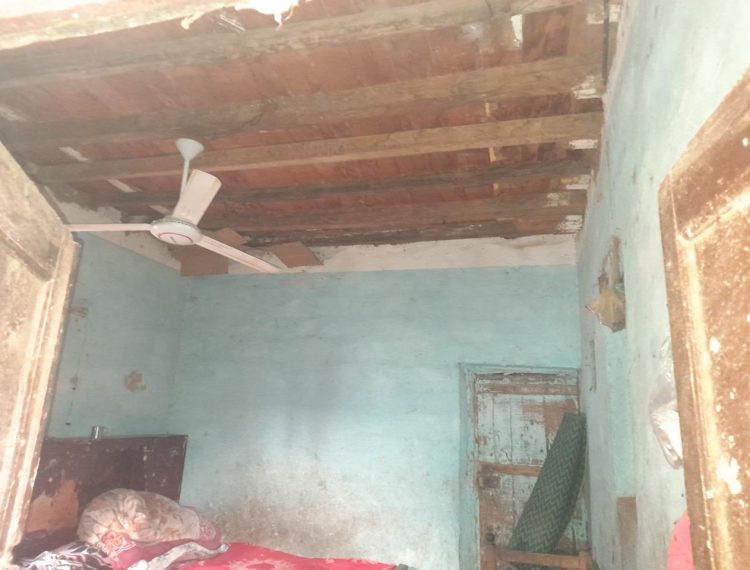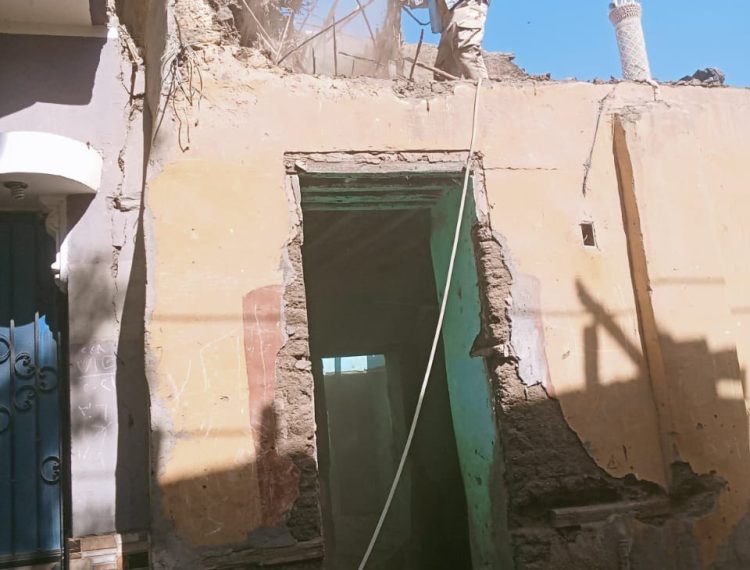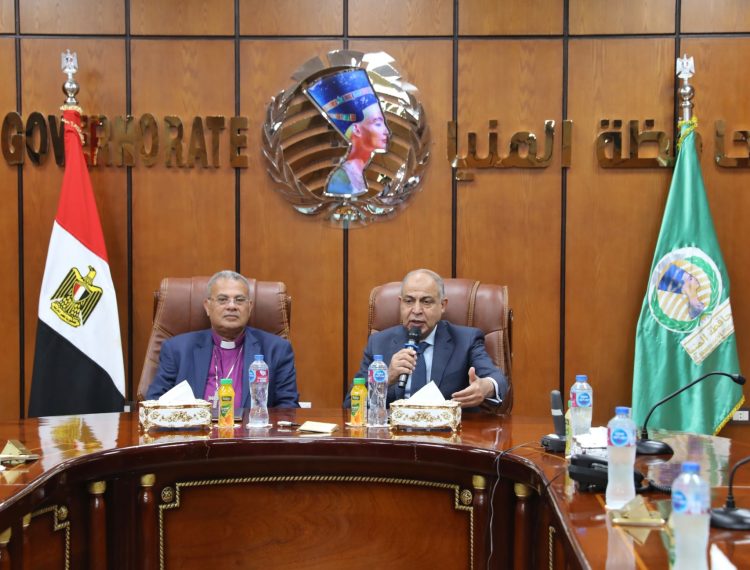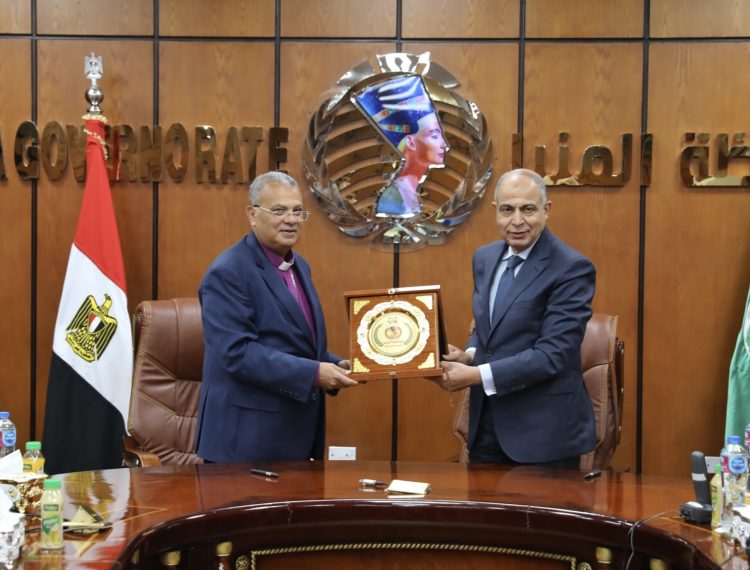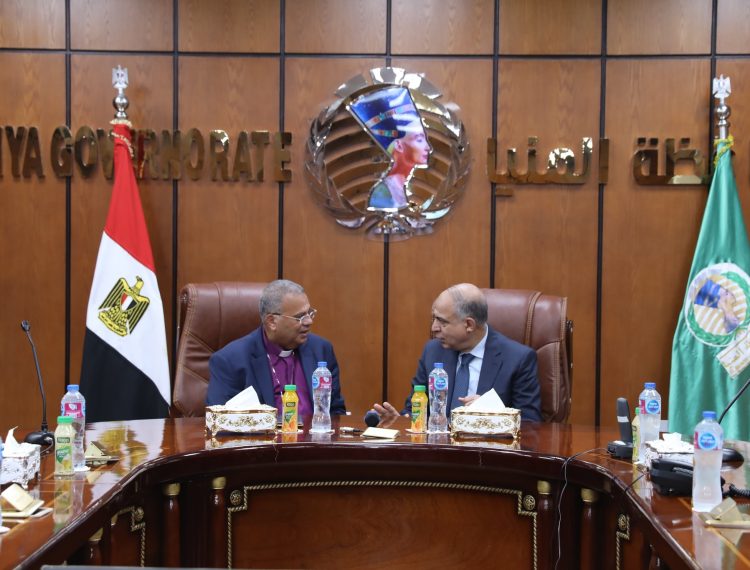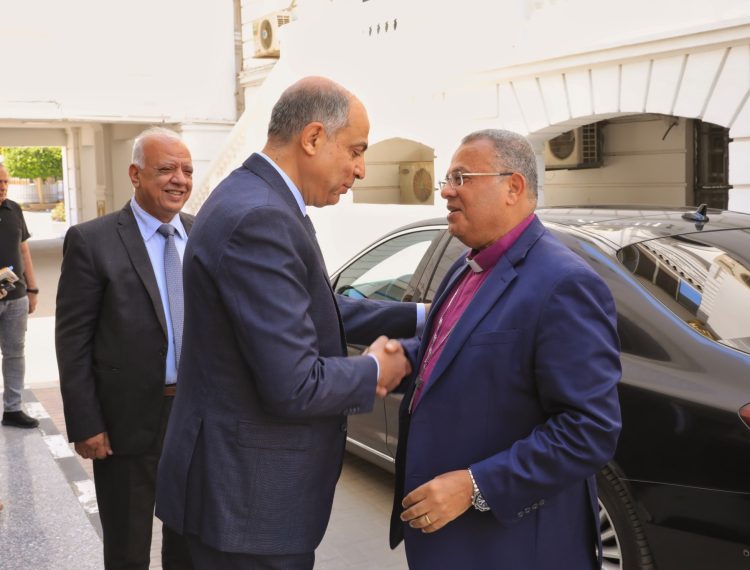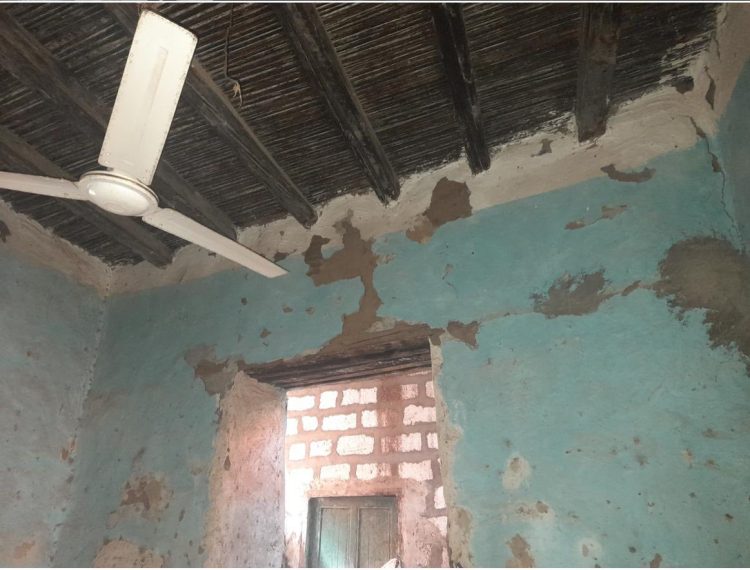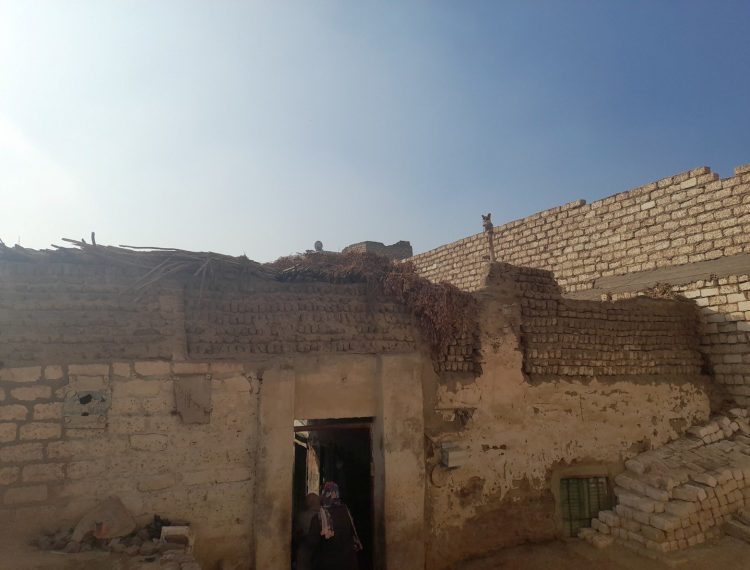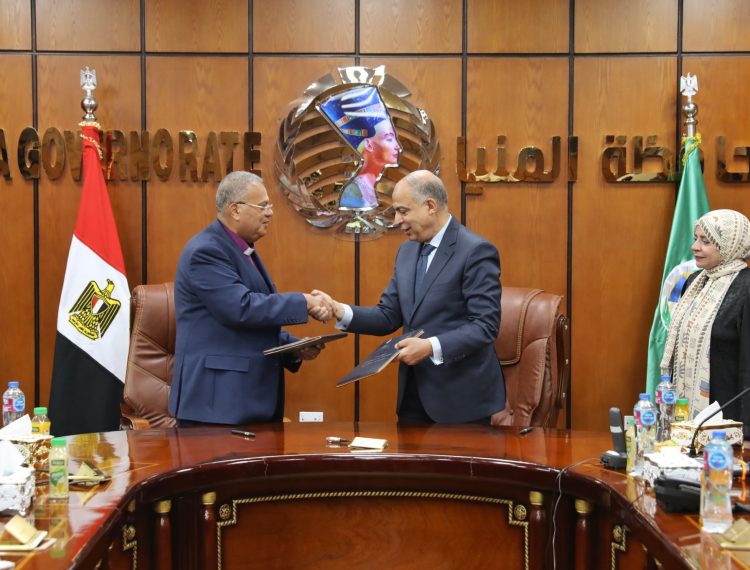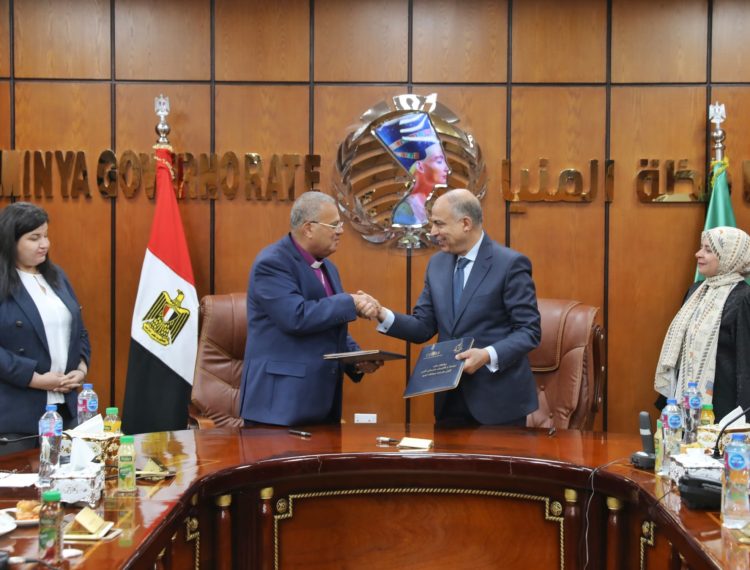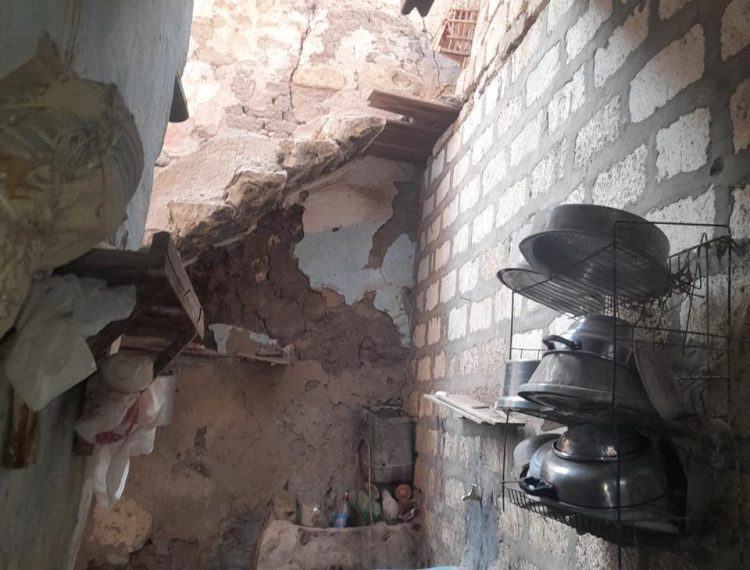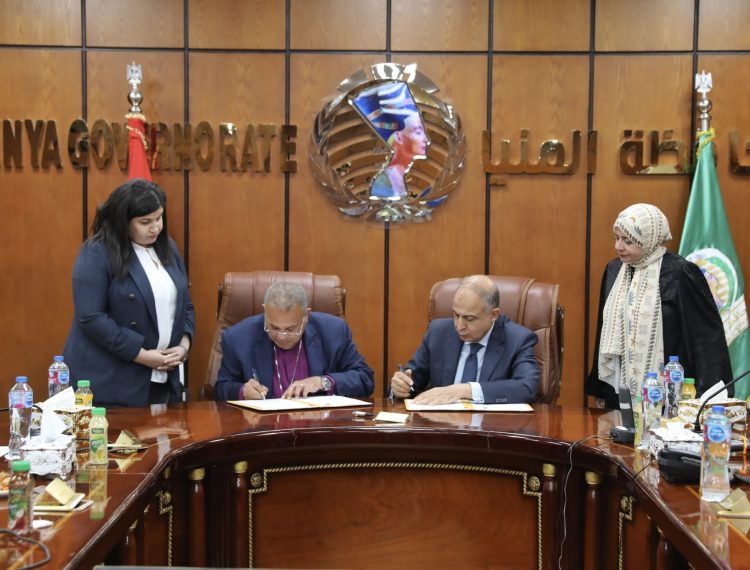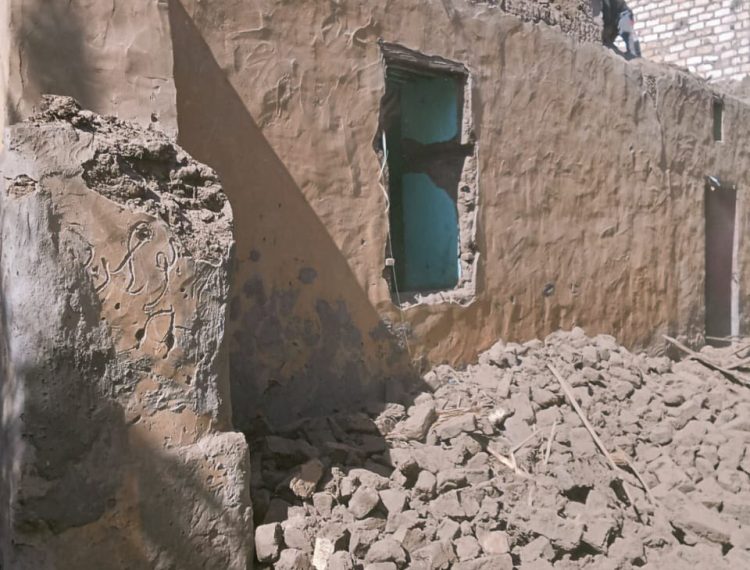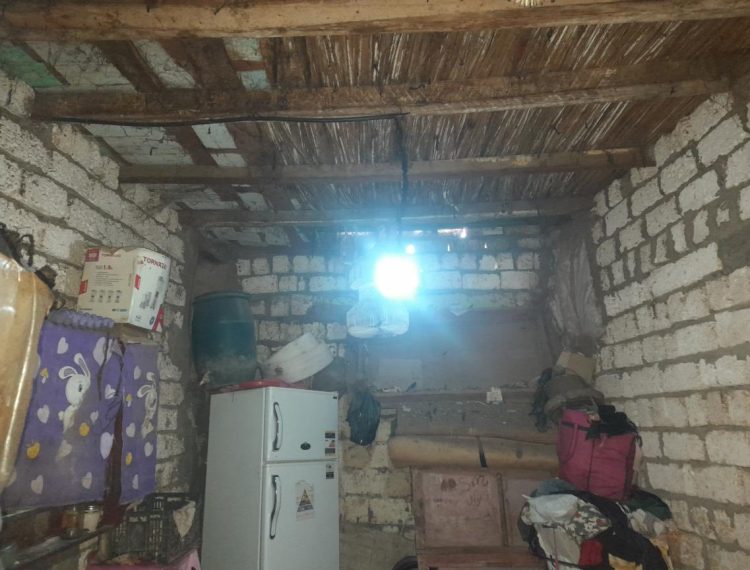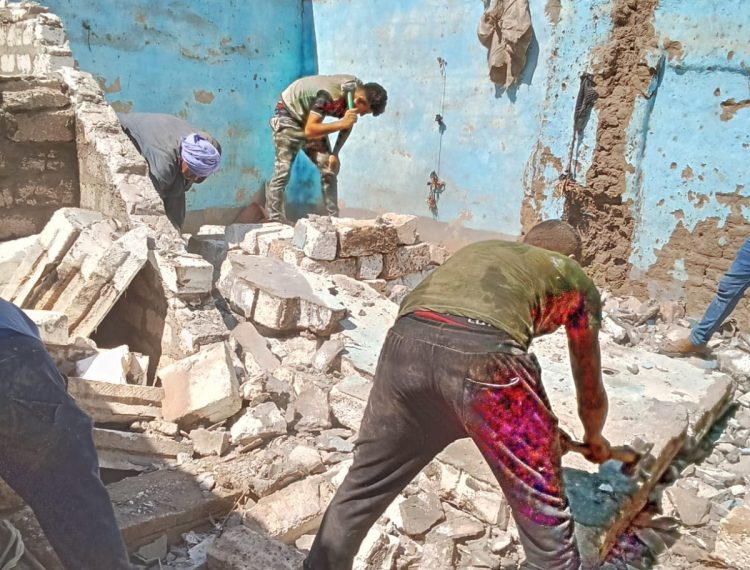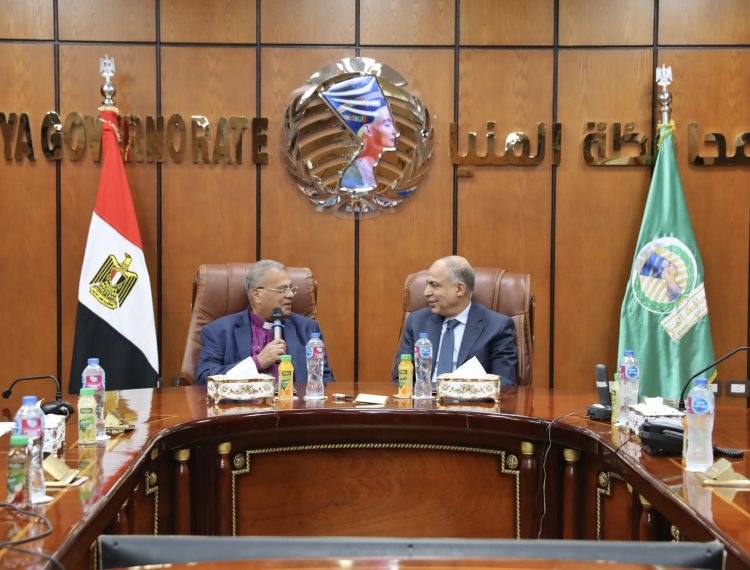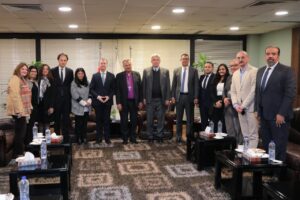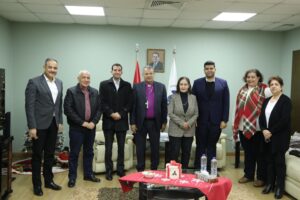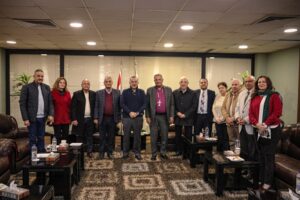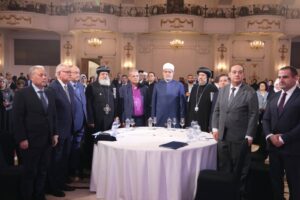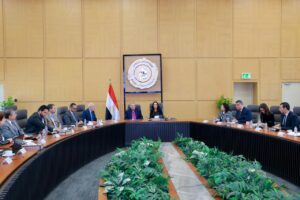New Partnership between Minya Governorate and the Coptic Evangelical Organization to Support Vulnerable Families and Provide Decent Housing in the Most Needy Villages
Kadwani: The hands of the state and civil society unite to alleviate the suffering of vulnerable families
Andrea Zaki: Serving the citizen is a great honor
Major General Imad Kadwani, Governor of Minya, and Rev. Dr. Andrea Zaki, President of the Evangelical Community in Egypt and Head of the Coptic Evangelical Organization for Social Services, today signed a cooperation protocol to renovate and upgrade 40 houses for vulnerable families in the most needy villages. The signing took place in the presence of Professor Dr. Mohamed Abu Zeid, Deputy Governor, as part of the state’s efforts to improve infrastructure, enhance quality of life, and achieve the goals of Egypt’s Vision 2030.
The protocol includes carrying out renovations, improving housing conditions, building roofs, and enhancing the housing environment and infrastructure in the villages of El-Roubi in Samalout Center, Edkak El-Mesk, and Ezzbet Shehata in Matai Center. The project will be implemented in three phases over two years, with beneficiaries exempted from permit fees and expedited implementation procedures coordinated between the Governorate’s Human Rights Unit and the Directorate of Social Solidarity.
During the signing ceremony, Governor Imad Kadwani emphasized that the protocol reflects the integration of state and civil society roles in developing the most needy villages. He praised the active role of the Coptic Evangelical Organization in supporting development plans, particularly in sectors that directly impact citizens’ lives. He added: “We seek to ensure citizens’ satisfaction in the most needy villages, in line with the state’s approach to providing decent housing and achieving comprehensive and sustainable development across the nation.”
For his part, Rev. Dr. Andrea Zaki expressed his appreciation for the fruitful cooperation with Minya Governorate, affirming that partnerships with executive bodies ensure the success of community initiatives and create tangible positive impacts on citizens’ lives. He stated: “The protocol we are signing today is not just a construction and renovation project; it is a message of commitment and a true partnership between civil society and state institutions to create a better environment for the people of Minya and provide the elements of a dignified life for vulnerable families.”
The Head of the Organization also noted that this year marks the 75th anniversary of its founding, with the celebration to be held in Minya Governorate, reaffirming its significance and role in development and community partnership.
The Organization’s delegation also presented some of its activities, including the “Plant” initiative, launched in partnership with the Ministries of Social Solidarity and Agriculture under the umbrella of the National Alliance, which aims to cultivate 100,000 feddans of wheat across the governorate’s centers and support 40,000 farmers, strengthening Egypt’s food security.
Attendees from the Coptic Evangelical Organization:
Samira Louka, Head of the Dialogue Sector; Nasser Sadeq, Head of the Minya Office; Ashraf Nasih, Head of Atsawood; Susan Sedky, Head of Local Development; Heba Yousry, Head of Dialogue Programs; Essam Wasif, Head of Public Relations; Youssef Edward, Head of Media; Magid Boulos, Head of the “Plant” Initiative; Nabil Ezzat, Head of Programs and Grants; and Marian Milad, Head of Development Programs.
Attendees from the Governorate Headquarters:
Awis Ghareiany, Head of Samalout Center; Howaida El-Shafei, Head of Matai Center; Abdel Hamid El-Tahawy, Undersecretary of the Ministry of Social Solidarity; Naglaa Hamdy, Head of the Citizens Service Department; Dalia Mohamed, Head of the Human Rights Unit; and Hiyam Mostafa, Head of the International Relations Department at the Governorate.
The protocol is being implemented in cooperation with Habitat for Humanity Egypt and funded by Emaar Misr. It aims to develop and upgrade homes, build roofs, improve the residential environment and infrastructure, accelerate implementation, and ensure the provision of a safe and dignified environment for beneficiary families.

